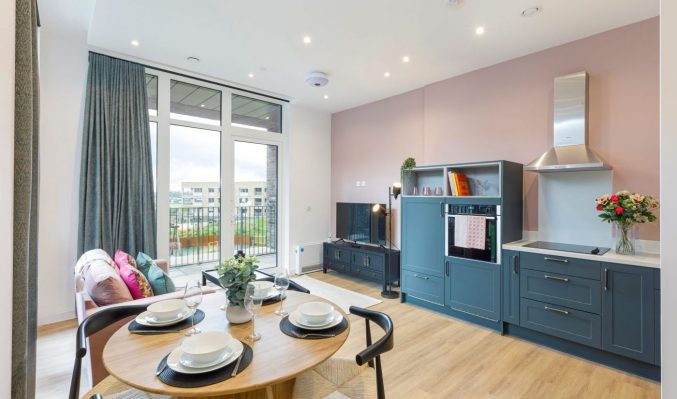Tips for becoming a full-time landlord
By Bridging Loan Directory
Daniel Owen-Parr, head of professional sector and auction at specialist lender, Together
Opting to give up the comfort and security of the nine-to-five job, to dedicate your working life to being a landlord, is a big decision – and not one that should be taken lightly.
We’ve put together a guide to the basics, designed simply as a kicking-off point and something to inspire further reading and research…
Do your sums
Look at the difference between your total rental income and outgoings (mortgage repayments, insurance, agents’ fees, etc.). This is, in essence, your gross profit – and you’ll have to live on this (after putting some aside for tax) if you give up your day job.
Is this enough? What would you do if one of your properties lay empty for a few months?
In order to live comfortably without maintaining a second job, you’ll likely need to have a number of properties – perhaps five or more, depending on your equity in the properties and where you’ve set the rent.
Make a business plan
To get your bank manager on board, you’ll need to put together a business plan. Use this opportunity to identify potential problems, and outline your strategy for achieving your goals. You should also make a financial forecast.
It’s a good idea to decide what your endgame is. If the plan is to give up work at 55 and sell your portfolio to fund a comfortable retirement, say so. Then work backwards from there, step-by-step, and reverse-engineer how you’ll achieve it.
If and when you decide to expand your property portfolio, you may well be asked to justify your decision to expand by presenting a business case or cashflow forecast while applying for a buy-to-let mortgage. Although, at Together, we won’t ask for this – we simply do our own sums based on the projected rent and your repayments.
Identify your customer
You could decide on one of two avenues: long-term lets, and short-term.
Holiday lets can be more lucrative in terms of income, and if being a landlord is your only job, you’ll have time available to give the place a quick clean, and change the bedding and towels, between each booking. This can save you a significant amount on the cost of managing a short-term letting.
Remember, ‘holiday lets’ aren’t limited to seaside or countryside properties; the ‘Airbnb generation’ mean pieds-a-terre in destination cities make great short-term rentals too.
Taking a wage
For tax purposes, you may well want to register as a limited company. In doing so, any profits the business makes belong to the business, and you’ll need to pay corporation tax on them. You’ll then need to pay yourself a wage as a director of the business (and pay income tax through PAYE). Or, you can alternatively take a small wage, then pay yourself a dividend once a year and pay tax on it through self-assessment.
If you elect not to register as a limited company, you’ll need to complete a self-assessment tax return and declare all of the profits you make, then pay income tax on them.
Speak to your financial advisor to see which could work best for you – there is an argument for both, depending on your growth aspirations and the profits you’re making.
Filling your days
If things are ticking along nicely, there won’t necessarily be a lot of ‘work’ required. That said, if you’ve elected to manage and maintain the property yourself, you may want to pick up a few skills for when something goes wrong, or you need to renovate.
Consider picking up a trade (whether electrics, plumbing, or something else) and this could save you in the long term.
Managing your portfolio
As a full-time landlord, you’ll want to keep one eye on the wider housing market when deciding what to do with your properties.
You may want to accumulate as many properties as possible, or you may want to consolidate by having a smaller number of high-value properties that command a larger rent. This decision will depend on your local rental demographics, and a knowledgeable local lettings agent can steer you on where demand lies.
For instance, some landlords own several identical properties in the space of a few streets (although be aware this can leave you exposed in the event that demand for your one type of property suddenly dries up). Equally, a local agent may suggest a diversified portfolio, aimed at a mix of renter types
For further information about any aspect of becoming a landlord, visit Together’s hub at togethermoney.com/commercial-lending/buy-to-let/landlord-hub/











You must be logged in to post a comment.